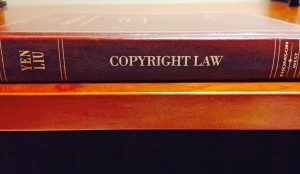Sherlock Holmes and Copyright Law: Elementary, my dear Watson
“There is nothing new under the sun. It has all been done before.” – Sherlock Holmes
Each time Sir Arthur Conan Doyle’s fictional detective Sherlock Holmes faced an especially challenging problem, he called it “a five pipe problem.” By this, Holmes meant that finding a solution was difficult enough to keep him up through the night, enough time for him to fill his pipe with tobacco five times. The legal problems that arose before Sherlock Holmes was added to the public domain in the United States are complicated enough to be dubbed “five pipe problems.” Over 125 years have passed since Doyle first introduced the characters of Holmes and Watson. Because so much time has elapsed, the copyright on the material has expired; any author is free to write and publish new adventures for the master detective. By law, anything that was published prior to January 1, 1923 is designated as material in the public domain. Works that were published after 1923 are subject to protection by copyright for a number of years after the death of the work’s author or initial publication.
Doyle’s descendants (pdf), however, view this development as a theft worthy of Holmes’ archenemy Moriarty. Ten of the later stories that Doyle wrote fall outside the date when the copyright expired, and for this reason, the estate claims that these books are still its property. The Doyle estate further claims that the characters of Holmes and Watson were not developed in their entirety at the end of the first story, A Study in Scarlet, as some would argue, but rather they continued to be developed over the course of the series. For this reason, the estate believes that the entirety of Doyle’s work should remain copyrighted until all of the stories reach the requisite length of time. Under the laws of the United Kingdom, by contrast, all of the Holmes stories are deemed to be in the public domain. Copyright laws in the UK extend a copyright for seventy years after the death of the author. Doyle passed away in 1930; therefore, his works have been in the public domain in the UK since 2000.
The court found that Holmes and Watson were fully developed before the last ten installments of their story.
The legal dispute in which Doyle’s descendants were involved arose after Leslie Klinger, lawyer and Holmes expert, filed suit to defend a collection of newly written Sherlock Holmes stories. The solution (pdf) reached by Chicago Judge Ruben Castillo was to prohibit writers from incorporating into their stories the plot developments that occurred within the last ten Holmes books that were written after 1923. Castillo determined that these later works only built to a small degree upon the characters of Holmes and Watson that had already been established in the previous installments. One of the most important developments of these stories that is still within the estate’s possession is the story of Sherlock Holmes’ retirement from detective work. As the publication date on each of these books reaches the one hundred twenty-five year mark, they will then be made available for public use.
Under Article I, Section 8 of the United States Constitution, Congress has the authority to determine the regulations regarding patents and copyrights. The modern law of copyright is contained in the Copyright Act of 1976. The Copyright Act provides many exceptions to the otherwise simple principle that the length of the copyright extends for seventy years after the death of the author. These exceptions have kept many works out of the public domain that otherwise would have been made public property. The public domain is a body of information including ideas, images, sound recordings, facts, and textual materials that are not covered by the law of intellectual property and are thus freely available for anyone who wants to utilize the material in their own work. Among the prominent works that could have been released to the public were it not for the copyright law’s application are Ayn Rand’s novel Atlas Shrugged, Jack Kerouac’s On the Road, and films such as Elvis Presley’s Jailhouse Rock or the legal drama 12 Angry Men.
The public domain is a body of information freely available for anyone who wants to utilize the material in their own work.
Under the Copyright Act of 1909 (pdf), the length of a copyright was only twenty-eight years, with an optional renewal period of another twenty-eight years. With the Copyright Act of 1976 (pdf), the law was changed so that the duration of a copyright became the life of the author and fifty years after his or her death. In 1998, the Copyright Act of 1976 was amended, extending the length of a copyright to seventy years after the death of a work’s author and ninety-five years after publication for a work the rights of which are owned by a corporation.
The The Digital Millenium Copyright Act of 1998 (“DMCA”) (pdf) applied the new time periods of seventy and ninety-five years to works copyrighted after 1998, as well as to works whose copyright had expired under the 1978 Copyright Act. As long as the owners of these copyrights had undergone the renewal process for their copyrights and included the required copyright symbols and information, the copyright term for works that were published between 1950 and 1963 was extended to ninety-five years from the date of publication. This means, for example, that Ian Fleming’s novel From Russia, With Love, published in 1957, will not enter the public domain until the year 2052.
Why does copyright law allow authors to cling tightly to their works, even from beyond the grave? The idea behind extending the length of the copyright period is that the benefits from holding a copyright—the protection of the author’s ability to profit from his hard work—should extend beyond the author to his or her children and grandchildren in order for them to be supported.
Society would benefit from expanding the content of the public domain.
In the field of political science, there is a concept known as the Tragedy of the Commons that some might argue applies to the copyright regime. It is based on the story of a common field where a group of farmers are free to graze their cattle. When left entirely to their own devices, the farmers will graze more cattle than the field can sustain, there will soon not be enough grass for their cattle, and all the farmers will suffer as a result. The lesson of this political science fable is that when a resource is owned communally rather than through a system of property rights, the resource will suffer because the people who use it, in seeking only their own best interest, will be led to overuse the resource to the detriment of everyone. The concern, therefore, is that the fate of overuse and resulting deterioration of resources will befall items added to the public domain.
Rather than the harm envisioned in the Tragedy of the Commons, society would greatly benefit from an expansion of the public domain’s contents. For example, in the case of some copyrighted films, many exist only on film that is beginning to break down because so much time has passed. If these works were added to the public domain, they could be put in a digital format that would allow them to be safe from deterioration. In addition, great works of literature, many largely unknown, would be available for authors to use in order to re-introduce the characters to the world.
“What one man can invent another can discover.” – Sherlock Holmes
Perhaps a point exists at which the costs involved in keeping something out of the public domain outweigh the benefit. Studies indicate that only two percent of works that have remained copyrighted for between fifty-five and seventy-five years maintain commercial value. The operation of modern copyright law denies access to an untold number of authors who are eager to draw from the rich depths of material contained in these works that have remained out-of-bounds for so long. Sherlock Holmes and John Watson have had the great fortune of being able to begin their escape into the public domain, but many other literary characters have not been so lucky.








